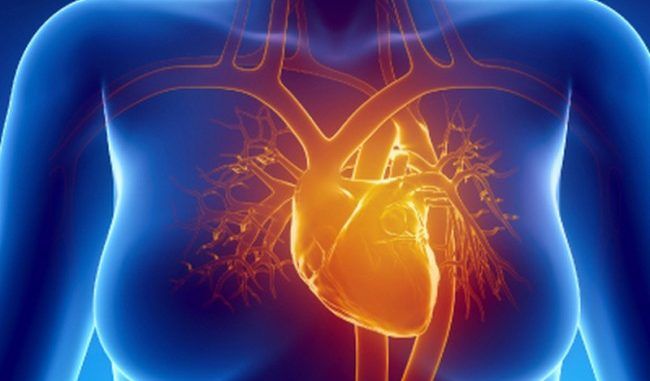
The American Heart Association have warned that women with breast cancer may be at increased risk of cardiovascular disease, including heart failure.
A team of specialists cautioned that breast cancer patients and their doctors need to weigh the benefits of certain cancer treatments against the potential harm to their hearts.
They say that Breast cancer survivors are more likely to develop heart problems after treatments like chemotherapy, radiation and targeted therapy. Even long-term breast cancer survivors can develop heart problems long after the treatments end.

BYPASS THE CENSORS
Sign up to get unfiltered news delivered straight to your inbox.
You can unsubscribe any time. By subscribing you agree to our Terms of Use
Natural News reports: According to the group, some of the most popular breast cancer therapies can actually damage the heart significantly. They report that problems like heart failure, valve problems, and abnormal heart rhythms are the most common heart-related side effects of getting cancer therapy. These problems might not appear until a long time after the treatment has come to an end.
The treatments identified as having the greatest risks to heart health include chemotherapy, targeted therapy and radiation. Breast cancer survivors who have a particularly heightened risk of cardiovascular disease include those who are exposed to radiation and chemotherapy that damage the heart and those with a sedentary lifestyle that causes weight gain while they undergo treatment. Those with pre-existing risk factors for heart disease, including unchecked or uncontrolled high cholesterol or high blood pressure throughout their treatment, also have a higher risk.
More than 48 million American women are dealing with cardiovascular disease, and more than four million are currently living with breast cancer. With the leading cause of death for American women being cardiovascular disease, experts are now urging patients and doctors to give serious consideration to the cardiovascular effects of the treatment options on the table.
The immunotherapy drug Herceptin, for example, raises the risk of heart failure, while radiation therapy can block or narrow arteries. Eight treatments with the chemotherapy drug doxorubicin can raise a woman’s risk of heart failure by five percent, while 14 doses raise it by an incredible 48 percent. It has been suggested that administering it more slowly could reduce its impact on the heart. Other cancer drugs have been known to tighten artery muscles and cause abnormal heart rhythms, increasing heart attack risk.
Breast cancer survivors who are older than 65 are actually more likely to die from heart failure and other cardiovascular problems than breast cancer, so it’s a matter that deserves very careful attention when choosing a treatment route.
It is also worth noting that the two conditions have many risk factors in common, such as smoking, family history, poor diet, and age. Moreover, hormone replacement therapy is a risk factor for heart disease as well as breast cancer.

Be the first to comment